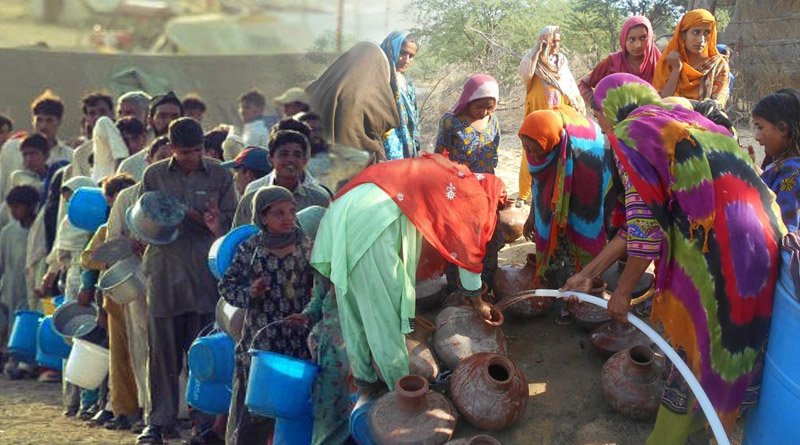In South Asia, Jamy said, “population growth & rising water demand, along with effects of climate change & ecosystem degradation, have made water cooperation more imperative.”

Pakistan emphasised the importance of transboundary water cooperation on Thursday, citing the 1960 Indus Water Treaty with India as an illustration of such successful cooperation that offered an efficient mechanism to deal with problems relating to the shared water resources.
After a ground-breaking response to the world’s water crisis, the UN 2023 Water Conference has come to an end. Nearly 700 commitments from governments, corporations, and civil society organisations have been made to advance the water agenda, which will hasten the pace of sustainable development as a whole.
Pakistan shares surface and groundwater resources with two of its neighbours, according to Hasan Nisar Jamy, secretary of the Water Resources Ministry and chief representative of Pakistan at the UN Water Conference in New York.
In South Asia, Jamy said, “population growth and rising water demand, along with the effects of climate change and ecosystem degradation, have made water cooperation even more imperative.”
“One example of such successful transboundary water cooperation, which provides an efficient mechanism for cooperation and management on water issues, is the Indus Waters Treaty, which regulates sharing of the waters of the Indus basin,” Jamy continued.
The goal of the conference—the first in nearly 50 years—is to address issues related to water. Jamy cautioned against unilateral actions, which could “spiral into threats to regional peace,” on the first day of the three-day event.
Pakistan is one of the top 10 water-scarce nations in the world, as well as one of the most vulnerable to climate change. Jamy emphasised how vulnerable Pakistan’s primary water source was to climate change.
Regarding “Water Governance,” Jamy stated that a policy was being implemented at the moment with an emphasis on the building of new reservoirs, increasing water use effectiveness, ensuring conservation, and improving management.
The UN University Institute for Water, Environment and Health (UNU-IWEH) issued a new ‘Global Water Security 2023 Assessment’ report, placing Pakistan in the list of 23 least developed countries (LDCs) and small island developing states (SIDS) facing critical levels of water security and sanitation services. These 16 LDCs and seven SIDs were also marked by high water, sanitation and hygiene (WASH)-attributable mortality rates.
The 23 countries include Pakistan, Afghanistan, the Solomon Islands, Eritrea, Sudan, Ethiopia, Vanuatu, Djibouti, Haiti, Papua New Guinea, Somalia, Liberia, St Kitts & Nevis, Libya, Madagascar, South Sudan, Micronesia, Niger, Sierra Leone, Yemen, Chad, Comoros and Sri Lanka.
The report assessed 57 countries in the Asia-Pacific with a total population of over 4.67 billion, including Papua New Guinea, the Solomon Islands, Afghanistan, Vanuatu, Timor-Leste, Pakistan, Cambodia and Yemen.
It found that these countries are severely impeded from achieving water security due to low levels of access to safely managed drinking water and sanitation services, health, WASH-attributed mortality, water quality, water value, water governance and water resource stability.
In 2022, unprecedented rainfall and flooding in Pakistan affected 33 million people, with estimates of total damages exceeding $14.9 billion and total economic losses reaching about $15.2 billion.
The report warns that without water security, countries are unable to support freshwater ecosystems, livelihoods, and human well-being. It highlights the need for policy discussions to focus on SDG 6 in the seven years left to fulfil it.
The first global assessment of water security was valued by UNU-INWEH Director Prof. Kaveh Madani as “a major contribution” to the UN 2023 Water Conference, which was held in New York from March 22–24.
While not an easy task, this research identifies the areas where policy, funding, and action should be focused in order to advance, meet the goals of the 2030 Agenda, and guarantee that those who are most vulnerable and insecure are not left behind.